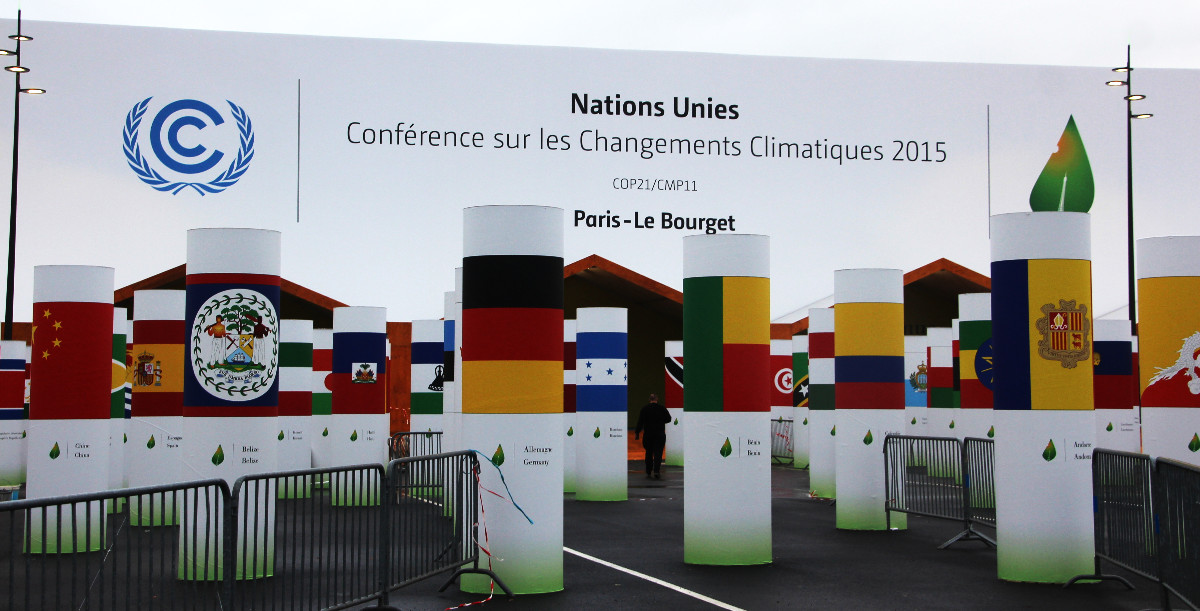 Entrance to COP21 in Paris, via Takver on Flickr
Entrance to COP21 in Paris, via Takver on Flickr
Doubling Down on Norms in Paris
On Saturday the world held its breath with anticipation, awaiting the crack of French Foreign Minister Laurent Fabius’ gavel. A deal was struck, one that achieved the participation of nearly two hundred states. The Paris Agreement is remarkable for achieving such broad cooperation—but is also remarkably imperfect. Some already see it as a hollow agreement, demanding nothing of states but their willing contributions, and offering no penalty for failure on one of the most important collective action problems the world has ever known. However, the Paris Agreement does exactly what global leaders needed: it lays the foundation for global “norms” and a climate regime.
In this case, the architects of this global climate deal took a leaf out of nuclear nonproliferation’s book and focused less on binding enforcement provisions, and more on inclusivity—a strategy which ASP outlined in our recent paper on climate diplomacy. The Nuclear Nonproliferation Treaty (NPT) is a vague six-page document, which despite being legally binding offers no penalty for failure except what the international community decides upon. The nonproliferation regime has not been a perfect success, but compared to the counterfactual—a world where President Kennedy believed there may be as many as 20 nuclear powers by 1964—it has done a remarkable job of averting worst case scenarios by galvanizing cooperation.
The climate agreement in Paris follows a similar path. Unchecked climate change is a threat to virtually every nation on the planet, and even though global leaders know that total cooperation is impossible, they still recognize that global agreements have value. This comes in the form of being able to pressure states who fail in their stated goals, or to tie climate obligations to other issues. The EU has employed this classic strategy in its expansion, forcing prospective members to make progress on human rights issues before being considered for membership. This has allowed the EU to advance agendas that it considers important, and the Paris agreement will be used in a similar way.
Global leaders should also be cheering for another big win at Paris, which was the call for establishing intergovernmental bodies to assess, analyze, and verify compliance through standardized metrics. The verification issue has plagued climate action, since states are reticent to make commitments on blind faith that their efforts are worthwhile or duly matched. “Doveryai no proveryai,” the Russian phrase meaning “trust but verify” was frequently used by President Reagan, who understood the importance of transparency when negotiating with rivals. Better transparency and a means of verification can only help the US when dealing with actors such as China, who are notorious for freeriding and hypocrisy on global policy issues.
It may be true that the Paris Agreement is unlikely to keep global temperature increases under 2 degrees Celsius on its own, but it will function as a foundational agreement. It will provide the tools and precedent to make other climate action more plausible. What was achieved in Paris was not an end goal, it was a first step.





